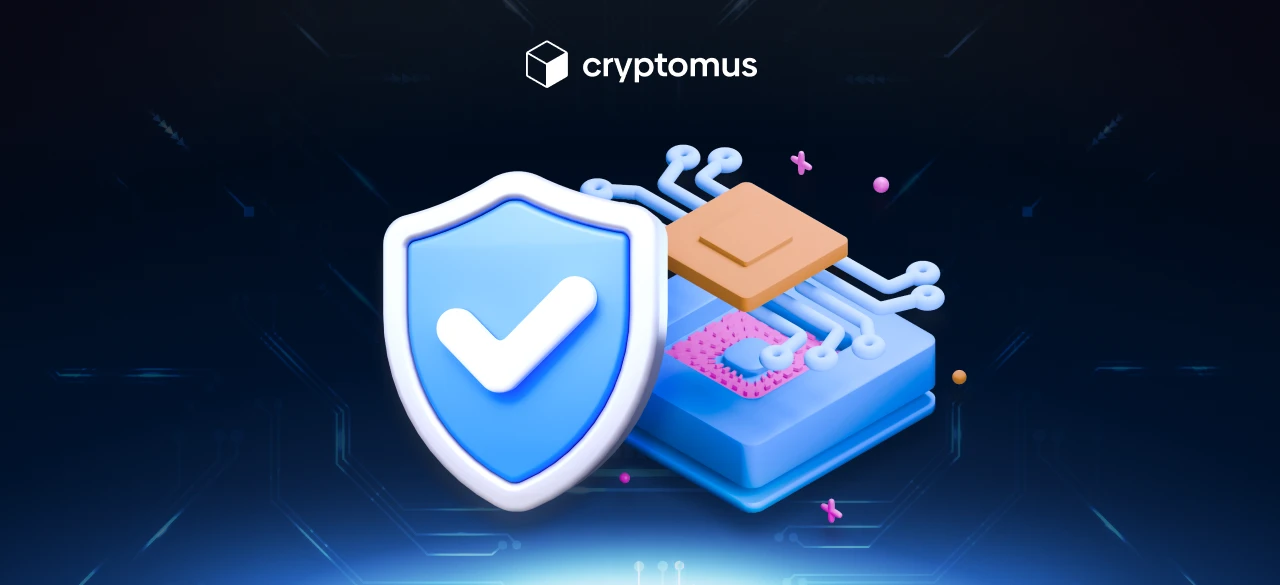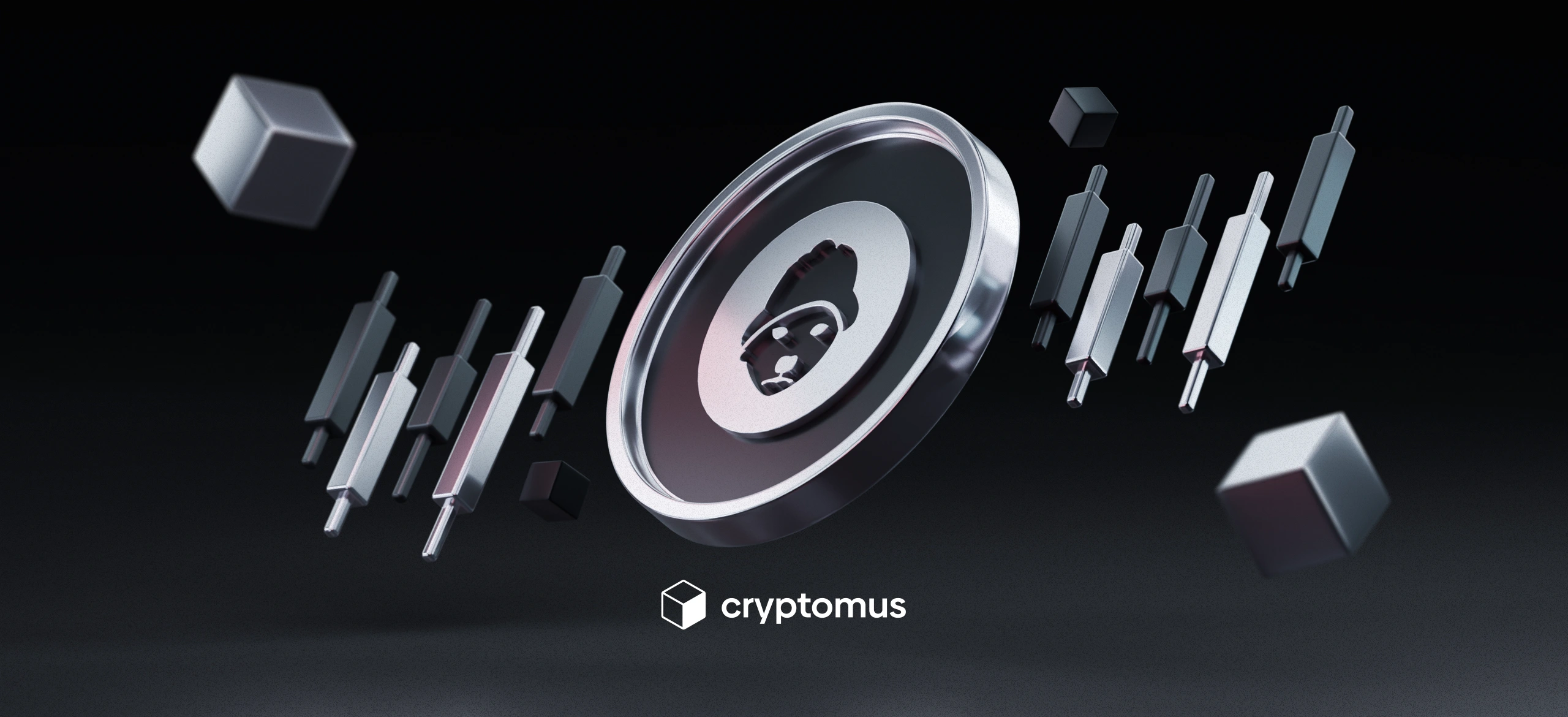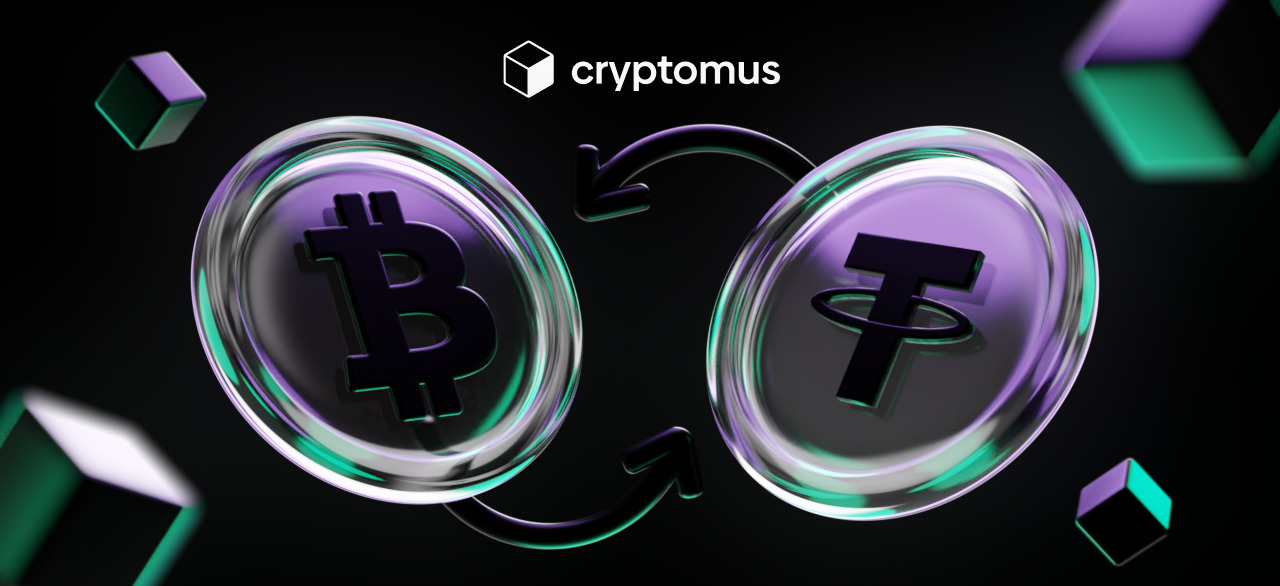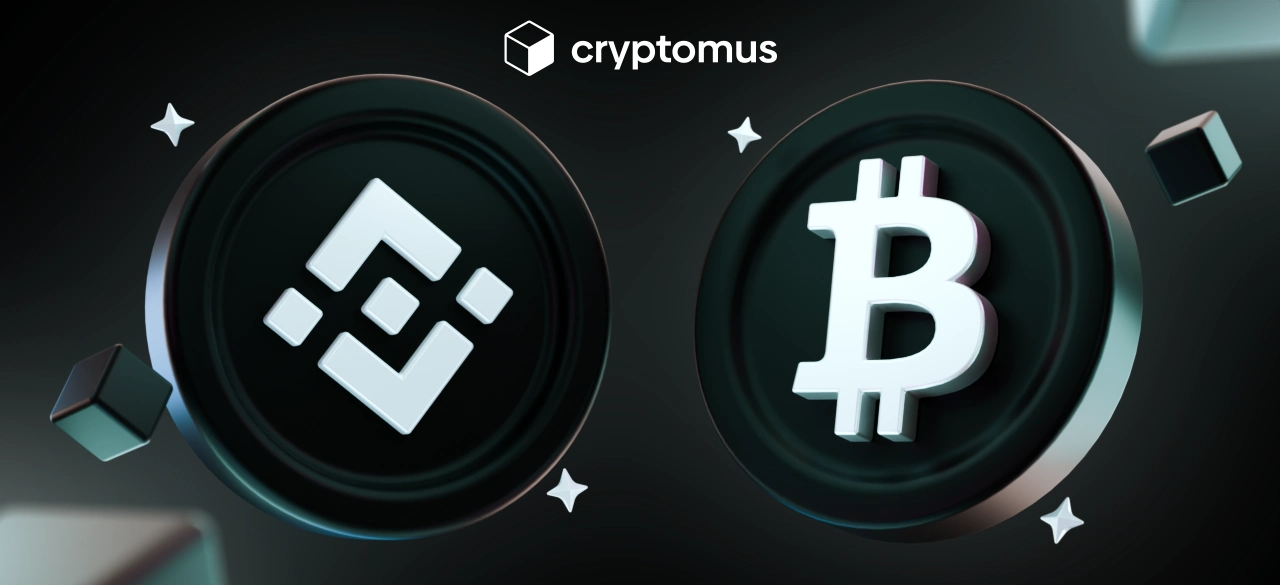
Bitcoin vs BNB: การเปรียบเทียบแบบครบถ้วน
สารบัญ
วันนี้เราจะพูดถึงสองเหรียญเด่นในโลกคริปโต: BTC และ Binance Coin คำถามคือ เหรียญไหนน่าเลือกมากกว่า? นี่เป็นคำถามพื้นฐานสำหรับทั้งผู้เริ่มต้นและนักลงทุนที่มีประสบการณ์ ซึ่งถือว่าเป็นเรื่องปกติที่เหรียญทั้งสองมีความคล้ายคลึงกัน ทำให้การตัดสินใจยากขึ้น คู่มือนี้จะช่วยให้คุณแยกแยะความแตกต่างได้ง่ายขึ้น
Bitcoin คืออะไร?
Bitcoin เป็นผู้บุกเบิกและผู้ปฏิวัติวงการตลาดการเงินและเครือข่ายบล็อกเชน โดยปัจจุบันยังคงเป็นผู้นำที่มีมูลค่าตลาดสูงที่สุด ผู้สร้างนิรนามหรือกลุ่มผู้สร้างที่ใช้ชื่อว่า Satoshi Nakamoto ได้เปิดตัวสกุลเงินดิจิทัลนี้ต่อสาธารณะในปี 2009 และตั้งแต่นั้นมา Bitcoin ก็กลายเป็นคริปโตที่เป็นที่รู้จักมากที่สุดในโลก ความนิยมของ Bitcoin ยังเป็นแรงบันดาลใจให้เกิดเหรียญดิจิทัลอื่น ๆ อีกมากมาย
อย่างไรก็ตาม แม้ Bitcoin จะมีชื่อเสียงที่ดี แต่ยังมีปัญหาสำหรับธุรกิจขนาดเล็กและขนาดกลาง เช่น ค่าใช้จ่ายเริ่มต้นที่สูงและความเร็วในการทำธุรกรรมที่ช้า
BNB คืออะไร?
Binance Coin เป็นเหรียญประจำแพลตฟอร์ม Binance ซึ่งถูกสร้างขึ้นในปี 2017 ในรูปแบบของ ERC-20 บน Ethereum ด้วยเหตุนี้ BNB จึงสามารถทำงานกับ smart contract ได้ ต่อมาเหรียญถูกย้ายไปยังเครือข่ายของตนเอง—Binance Chain ซึ่งพัฒนาโดยการสนับสนุนของหนึ่งในเว็บเทรดคริปโตที่ใหญ่ที่สุดในโลก
ปัจจุบัน BNB ทำงานบนชั้นฐาน (Layer 1 – L1) และเป็นส่วนหนึ่งของ BNB blockchain ในโลกดิจิทัล เหรียญนี้เป็นที่รู้จักดีในเรื่องความเร็วในการทำธุรกรรมสูงและค่าธรรมเนียมต่ำ ซึ่งถือเป็นข้อได้เปรียบสำคัญเมื่อเลือกซื้อ
Bitcoin vs BNB: ความแตกต่างที่สำคัญ
ถึงเวลามองให้ชัดถึงคุณลักษณะเฉพาะของนักเล่นตัวใหญ่ทั้งสองในโลกคริปโตนี้ ด้านล่างคือปัจจัยสำคัญที่ช่วยให้คุณแยกแยะ BTC และ BNB ได้ง่ายขึ้น
ความเร็วในการทำธุรกรรม
ความเร็วของธุรกรรมเป็นปัจจัยหลักในการเลือกเหรียญคริปโต BNB ใช้เวลาเพียงไม่กี่วินาทีในการยืนยันธุรกรรมและสร้างบล็อกใหม่ทุก ๆ 3 วินาที ในขณะที่ Bitcoin ใช้เวลาประมาณ 60 นาที
ความสามารถในการรองรับธุรกรรมจำนวนมาก (Scalability)
เครือข่ายของ Bitcoin ประมวลผลได้ประมาณ 7 ธุรกรรมต่อวินาที (TPS) ซึ่งถือว่าน้อยมากเมื่อเทียบกับมาตรฐานปัจจุบัน Binance Smart Chain รองรับประมาณ 160 TPS ทำให้ BNB เหมาะสำหรับแอปพลิเคชันที่ต้องการธุรกรรมจำนวนมาก เช่น DeFi หรือเกมบนบล็อกเชน
ค่าธรรมเนียม (Fees)
ค่าธรรมเนียมเป็นอีกปัจจัยที่ต้องพิจารณา
- ค่าธรรมเนียม Bitcoin เปลี่ยนแปลงตามความแออัดของเครือข่าย เฉลี่ยอยู่ที่ 1–20 ดอลลาร์
- ค่าธรรมเนียมของ BNB ต่ำกว่ามาก อยู่ที่ประมาณ 0.05–0.50 ดอลลาร์
Bitcoin เหมาะสำหรับธุรกรรมขนาดใหญ่และการเก็บมูลค่า แต่ค่าธรรมเนียมที่แพงทำให้ไม่เหมาะกับการใช้งานบ่อยหรือธุรกรรมขนาดเล็ก ในจุดนี้ BNB ถือว่าถูกกว่าและเร็วกว่า เป็นที่นิยมสำหรับ NFT และผู้ใช้ที่ต้องการประหยัดต้นทุน
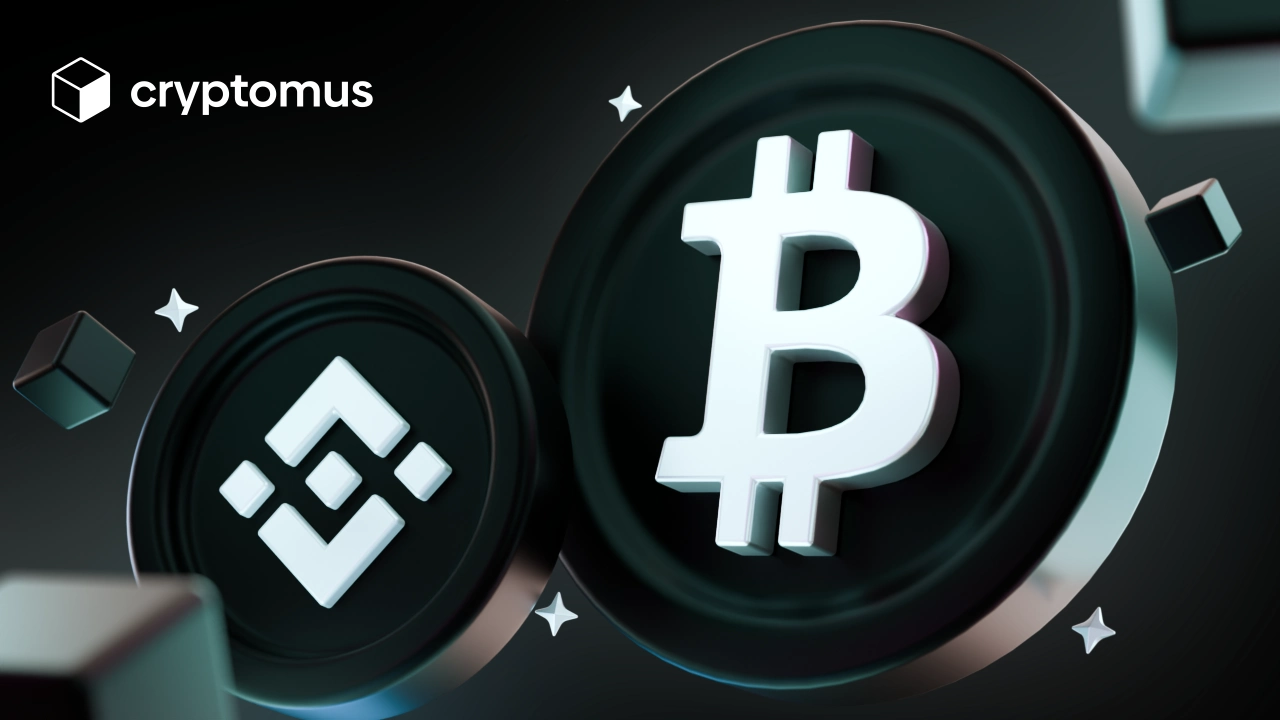
กลไกฉันทามติ (Consensus Mechanism)
Bitcoin ใช้อัลกอริธึม Proof-of-Work (PoW) ที่ต้องการให้ผู้ขุดแข่งขันกันแก้สมการทางคณิตศาสตร์เพื่อยืนยันธุรกรรมและสร้างบล็อกใหม่ กระบวนการนี้ใช้พลังงานและกำลังประมวลผลสูง แต่เป็นสิ่งที่ทำให้เครือข่ายมีความปลอดภัยอย่างมาก เพราะมีความกระจายศูนย์สูง การโจมตี 51% แทบจะเป็นไปไม่ได้
BNB ใช้กลไกแบบผสมที่รวม Proof-of-Stake (PoS) และ Proof-of-Authority (PoA) เรียกว่า Proof-of-Staked Authority (PoSA) Validators สร้างบล็อกโดยการ stake BNB และได้รับการอนุมัติจากเครือข่าย การเลือก validator ขึ้นกับชื่อเสียงของพวกเขา ไม่ต้องแก้สมการซับซ้อนแบบ PoW จึงประหยัดพลังงานและมีประสิทธิภาพมากกว่า แต่ข้อเสียคือ จำนวน validator มีน้อย ทำให้ความเชื่อมั่นอาจลดลงได้
Bitcoin vs BNB: ควรซื้อเหรียญไหนดีกว่า?
เมื่อเราพิจารณาอย่างละเอียดแล้ว ก็ถึงเวลาตอบคำถามหลักของบทความนี้ ดูเหมือนว่าการแข่งขันจะออกมาเสมอกัน เพราะทั้งสองเหรียญต่างก็มีที่ทางในกระเป๋า crypto ของคุณ แต่ใช้สำหรับวัตถุประสงค์ต่างกัน
-
หากคุณต้องการสินทรัพย์สำหรับการลงทุนระยะยาว Bitcoin อาจเป็นตัวเลือกที่ดี เนื่องจากหลายคนเรียกมันว่า “ทองคำดิจิทัล” เพราะมันค่อนข้างเสถียรและมีโอกาสร่วงน้อย นอกจากนี้ BTC ยังมีมูลค่าตลาดสูงและเป็นที่ยอมรับทั่วโลก
-
ในขณะที่ BNB เหมาะกับผู้ที่ใช้งานแพลตฟอร์ม Binance บ่อยหรือเข้าร่วม DeFi มันให้คุณ staking และใช้บริการอื่นภายใน ecosystem อย่างไรก็ตาม BNB ราคาผันผวนสูง และขึ้นอยู่กับประสิทธิภาพของ Binance ซึ่งทำให้มีความเสี่ยงเพิ่มขึ้น
Bitcoin vs BNB: การเปรียบเทียบแบบตัวต่อตัว
| เหรียญ | วันที่เปิดตัว | กลไกฉันทามติ | ความเร็วในการทำธุรกรรม | ธุรกรรมต่อวินาที | ค่าธรรมเนียม | การใช้งานหลัก | |
|---|---|---|---|---|---|---|---|
| Bitcoin | วันที่เปิดตัว2009 | กลไกฉันทามติProof-of-Work (PoW) | ความเร็วในการทำธุรกรรมประมาณ 10 นาทีต่อบล็อก | ธุรกรรมต่อวินาทีประมาณ 7 TPS | ค่าธรรมเนียม1–20+ ดอลลาร์ | การใช้งานหลักเก็บมูลค่า, ใช้ชำระเงิน, ทองคำดิจิทัล | |
| Binance Coin | วันที่เปิดตัว2017 | กลไกฉันทามติProof-of-Staked Authority (PoSA) | ความเร็วในการทำธุรกรรมประมาณ 3 วินาทีต่อบล็อก | ธุรกรรมต่อวินาทีประมาณ 160 TPS | ค่าธรรมเนียม0.05–0.50 ดอลลาร์ | การใช้งานหลักชำระค่าธรรมเนียม, DeFi, staking, ecosystem ของ Binance |
ใช่แล้ว เหรียญทั้งสองมีความคล้ายคลึงกันหลายจุด ทั้งคู่มีความทนทาน ได้รับการยอมรับ และมีรากฐานที่มั่นคง แต่ในเชิงเทคโนโลยี อัลกอริธึมของพวกเขาต่างกันอย่างชัดเจน
ท้ายที่สุด การเลือก cryptocurrency ขึ้นอยู่กับความต้องการและความสนใจของคุณเอง หากคุณตัดสินใจจะซื้อหนึ่งในสองเหรียญนี้ คุณสามารถลองดูแพลตฟอร์ม P2P ของ Cryptomus ซึ่งมีค่าธรรมเนียมต่ำและมีเหรียญให้เลือกมากมาย
คุณคิดอย่างไรเกี่ยวกับสองเหรียญนี้? มาคอมเมนต์พูดคุยกันได้เลย!
ทำให้การเดินทางสู่ Crypto ของคุณง่ายขึ้น
อยากเก็บ ส่ง รับ เดิมพัน หรือซื้อขายคริปโทเคอร์เรนซีใช่ไหม? Cryptomus ทำได้ทุกอย่าง — สมัครและจัดการกองทุนคริปโทเคอร์เรนซีของคุณด้วยเครื่องมืออันแสนสะดวกของเรา
เริ่มต้นใช้งาน

